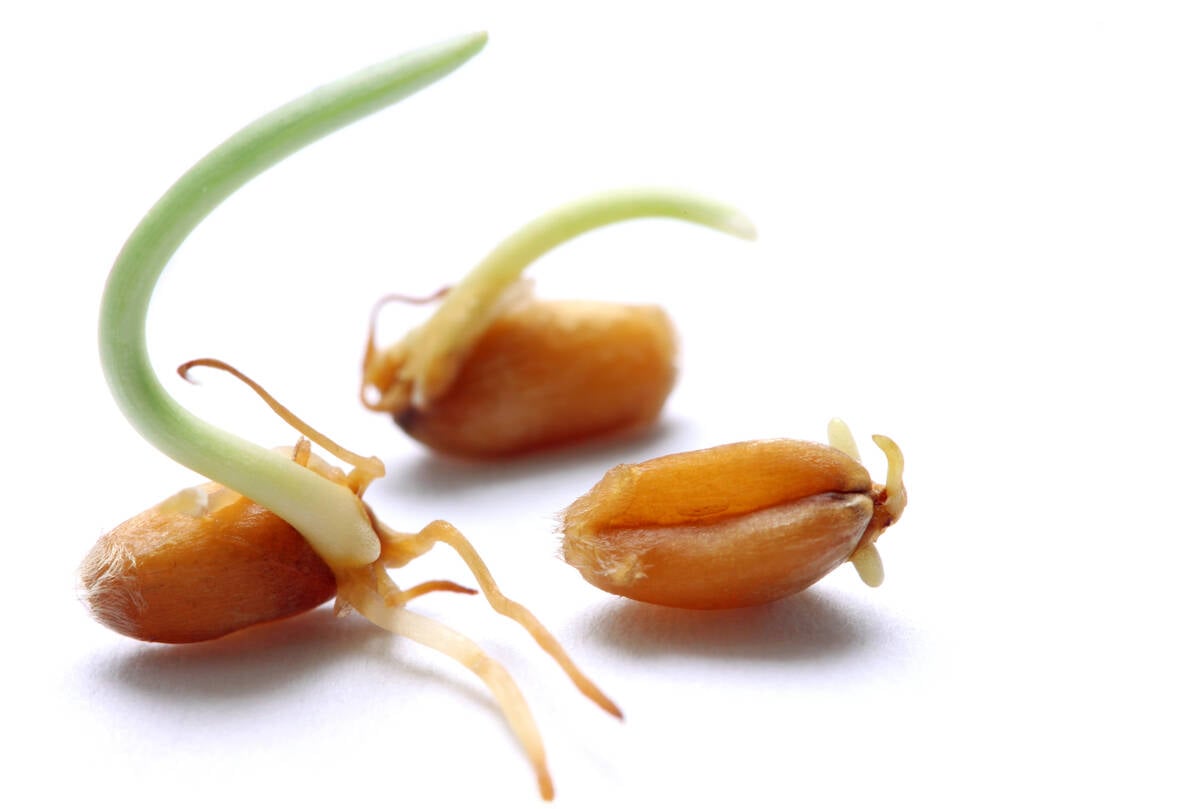A prominent barley grower is skeptical that a new committee will get to the bottom of the contaminated barley problem that’s plaguing the grain industry.
“I hope they do but I honestly don’t think they will,” said Ted Cawkwell, a former president of the Western Barley Growers Association and the barley growers representative on the western grain standards committee.
In an interview last week from his farm at Nut Mountain, Sask., Cawkwell said he doubts whether the grain handling industry will be totally open with the committee about grain buying and blending practices, especially about what goes on at west coast terminals.
Read Also

Manitoba farmers fight sprouted wheat after rain
Rain in mid-September has led to wheat sprouting problems in some Manitoba farm fields.
“They don’t even want to admit they do add-backs on barley,” he said, referring to the practice of adding dockage to feed barley cargoes to put them at the maximum tolerance levels.
However a spokesperson for the Canadian Grain Commission, which set up the committee, said the agency expects everyone will co-operate fully with the committee.
“I think people will want to do what is right for the system,” said Reg Gosselin. “We all have a vested interest in making sure we maintain our markets.”
Rejected shipments
Last year two boatloads of barley were rejected by Japanese buyers because of contamination with deer excrement. While that hasn’t happened again, overseas buyers are concerned about the situation. The grain commission has set up a special committee to examine why contaminated barley is still showing up in the system and figure out what to do about it.
Gosselin said members of the committee, which include a former grain company executive and a former chief grain inspector, have been around long enough to know what’s going on.
“The commission expects that they will be able to do whatever it takes to get to the bottom of this thing,” he said.
Cawkwell, who was approached to let his name stand for the committee but declined, thinks the entire handling and transportation system has become contaminated with excrement and even grain that is delivered clean by farmers is being contaminated in elevators and rail cars.
“I don’t think there’d be a lot coming in from new deliveries,” he said. “I think why we still have a problem is that we’ve contaminated everything, the country elevators, rail cars, terminals.”
Probably the only way to eliminate the problem will be to “flush out” the system with deliveries of clean grain, he said.
Cawkwell suspects the excrement that’s showing up in the system is from the 1996 crop, which was harvested late and involved some spring harvesting.
He also believes the contamination is part of a larger problem with the entire grain marketing system, in which no one is held directly accountable for problems involving grains exported by the Canadian Wheat Board.
“The grain companies won’t ship deer dung in canola because that’s their own shipment,” he said. “If that boatload of canola goes to Japan then (the grain company) is responsible financially to clean it up, fix it, bring it back or whatever.”
He doesn’t think the grain companies are as vigilant in dealing with quality issues on wheat board grains: “Why would they care, because we pay for it as farmers, through the pool account.”
Cawkwell also said he can’t understand why producers weren’t informed about the problem last fall, when the grain commission must have been aware of it: “Why it’s taken so long for the shit to hit the fan, I’m really kind of stumped,” he said.














